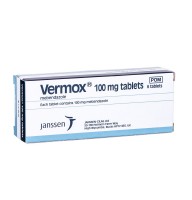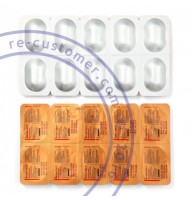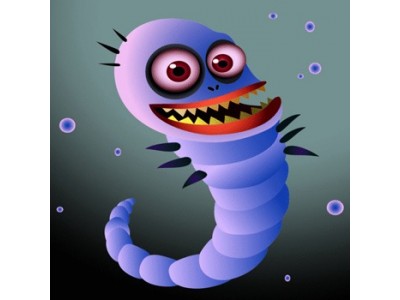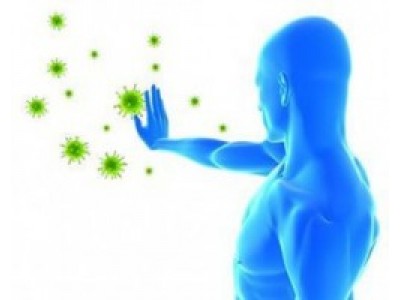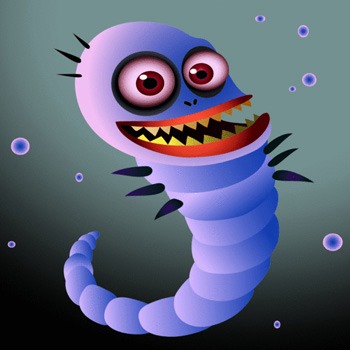 Each person in his or her life runs the risk of getting helminthiasis — this is the name of an illness in which worms, called helminths parasites in the body.
Each person in his or her life runs the risk of getting helminthiasis — this is the name of an illness in which worms, called helminths parasites in the body.
Helminths this is a topic that is not accepted to discuss in a decent society. Indeed, there is nothing pleasant about this topic, and many believe that it is a great shame to get infected with parasites.
In fact, virtually everyone sooner or later becomes a carrier of parasites, no matter who this is — a small child who believes that washing hands is a waste of time or an adult who uses hand sanitizers several times a day. Of course, helminthiasis must be treated. It is equally important to take preventive measures that prevent the ingress of eggs into the body.
Symptoms of helminths: how to understand that uninvited guests have settled in your body?
There are many signs of helminth infections, and we will list the main ones. If you notice at least a few of the symptoms, see a doctor and ask for help:
- Itching in the region of the anus and genitalia (typical of pinworm infestation)
- Urticaria — redness of the skin and rushes on it (allergic reaction to helminths)
- Edema of mucous membranes (also observed due to exposure to allergens)
- Abdominal pain, nausea, changes in appetite (increase or decrease), rapid weight loss
- Diarrhea, constipation, increased gas production, other disorders of stool
- Change in blood composition
- Weakness, fatigue, dizziness
- Headache
- Swollen lymph nodes, enlarged liver and spleen
- Pain in the joints and muscles
- Blood in the urine, frequent urge to urinate
- Dry cough, shortness of breath
- Constant fever
However, there are cases when helminth infection is asymptomatic for a long time. We recommend that you pay maximum attention to your health and for prevention, contact your doctor from time to time. This is especially true after trips to countries famous for insanitary conditions.
What are helminths? This is how we call the simplest round or flat worms, parasites in the human body or animals. Specialists nowadays know about 400 species of human worms.
The most famous helminths are, of course, roundworms and pinworms and various kinds of tapeworms. However, even experts are not able to list all the existing types of worms. Especially in exotic countries you can get helminths, which are absolutely untypical for the region that you live in.
It is because of the variety of worms that it is difficult to correctly diagnose a patient. Helminthiasis symptoms may resemble manifestations of all sorts of diseases — depending on which parasite has got into the body.
In addition, a person can suffer from several types of helminths at the same time, which makes the clinical picture even more complicated and corrupts the patient’s condition.
Based on where exactly worms are localized, they are divided into:
Сavitary or luminal worms — living in different parts of the intestine
Those that live in the tissues — they choose tissues of the body as the place of their habitation (muscles, lungs, heart, liver, skin, eyes, etc.)
Familiar to us all ascarids can be attributed to both types of helminths. Most often they live in the intestines, but sometimes the eggs of ascarids in the blood stream reach other organs of the body and develop there.
According to the World Health Organization, every second inhabitant of the Earth gets infected with helminths every year, without knowing it. Some researchers come to the conclusion that in 95% of people can be found the organisms of certain parasites.
What are ways of helminths transmission? Eggs of parasites always get into the body from the outside.
An important point: none of the species of helminths is able to reproduce within a person (this is the reason why often helminthiasis cures on its own — when the last of the parasites developed in the body die). However, if a person does not comply with the rules of hygiene, it is likely he or she will re-infect himself.
How do helminths get into the body?
There are several ways, but four of them are the most common:
- From a human or animal to person. So, for example, there is infection with pinworms. If a person affected by this type of worms does not wash his or her hands and touches various objects, this will become a risk factor for others (this is why enterobiasis — the scientific name for infection with pinworms — is a professional illness of teachers, because pinworms are a real scourge of younger schoolchildren)
- Through the soil (soil-transmitted helminthiasis). In this case, the eggs of the worms get into the soil with the feces of humans and animals, after which they are transported by water, insects, domestic animals or wind (with dust particles) and get on food or directly into the digestive tract or the respiratory tract
- When eating food that has not been well cooked. Raw or half-baked meat or fish, infected with worms, carry a very big danger. Therefore, you should carefully choose the restaurants where sushi is served
- With insect bites. This happens rarely, but the risk of getting helminthiasis via bite grows when traveling to exotic countries
Helminthiasis in children, how relevant is this topic? Worms are often considered a childhood disease. The reason for this is that children often do not care much about the simplest hygiene prescriptions: they do not wash their hands when they come from the street, visit the toilet or pet animals, eat dirty fruits and vegetables, and drink tap water. Kids, in addition, discover the world “through the mouth” — they, as you know, drag everything they can reach into their mouths. So this is how children become infected with helminths.
The facts to date are as follows: yes, children suffer from helminthiasis more often than adults. But this does not mean that being an adult is an insurance against penetration of worms into the body.
Is helminthiasis dangerous? Reasonable question: if the worms after a while, most likely, are going to die, should we treat this disease? Doctors answer: this step is necessary.
Some types of worms have a very long life expectancy and during this time will be able to cause our health serious harm. But even such parasites as pinworms, which die in about a month, are harmful to the body.
Possible consequences of helminth infection
- The products of the vital activity of worms act on the human body as poisons or allergens, reducing overall health. Allergic reaction, in turn, can lead to edema Quincke and death
- Inhabited in human tissues and organs, helminths damage them mechanically and interfere with normal functioning
- Larvae of worms, migrating through the body in a blood stream or getting into the respiratory tract, can clog the blood vessels and cause obstruction of the bronchi
- Some types of helminths disrupt the digestive process, which can lead to severe poisoning
- Specialists have discovered that there are helminths that provoke cancerous tumors
- Helminths are the most dangerous for children: in addition to a huge range of diseases and reduced immunity, they can cause a delay in development — both physical and mental
